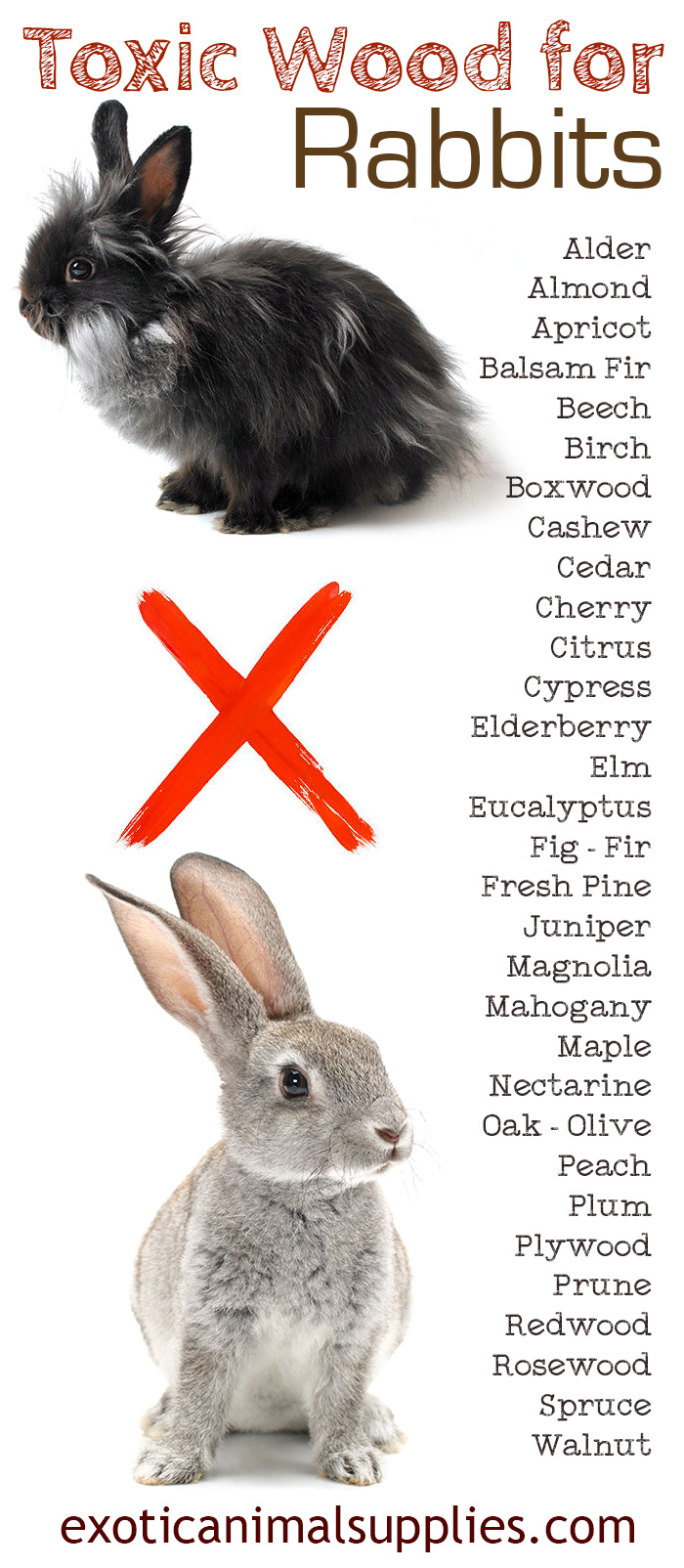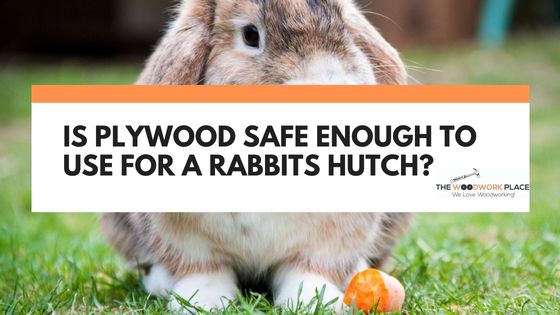Are you wondering if plywood is toxic to rabbits? Well, you’ve come to the right place! Whether you’re a rabbit owner or just curious about the safety of different materials, this article will provide you with all the information you need. So, let’s dive in and find out if plywood poses any risks to our furry friends.
When it comes to the well-being of our rabbits, it’s important to consider the materials they come into contact with. Plywood, a popular construction material made from thin layers of wood, may be present in our homes or rabbit enclosures. But is it safe? In this article, we’ll explore whether plywood can be harmful to rabbits and if there are any precautions you should take.
Keeping our rabbits safe and healthy is a top priority, and understanding the potential risks of various materials is key. So, let’s explore the topic of whether plywood is toxic to rabbits and ensure we provide the best environment for our beloved furry friends.
Wondering if plywood is toxic to rabbits? While plywood itself is not inherently toxic to rabbits, it’s important to consider the type of plywood, any sealants or additives used, and the potential for rabbits to chew on it. Avoid plywood treated with chemicals or sealants that may be harmful to rabbits. Opt for untreated, high-quality plywood to minimize any risks. Always supervise your rabbits and provide them with safe, rabbit-friendly materials and toys to prevent chewing on potentially harmful substances.

Is Plywood Toxic to Rabbits? Exploring the Facts and Risks
Rabbits are popular pets known for their curious nature and love for chewing on different materials. As responsible pet owners, it’s crucial to ensure the safety of our furry friends by understanding which materials may be harmful to them. One common material found in many households is plywood, commonly used in furniture, flooring, and construction. But is plywood toxic to rabbits? In this article, we will delve into the topic, providing detailed information and insights to help you make informed decisions about your rabbit’s well-being.
The Composition of Plywood
To determine the potential toxicity of plywood to rabbits, it’s essential to examine its composition. Plywood is made by bonding layers of thin wood veneers together with strong adhesives. These adhesives may contain chemicals such as formaldehyde, urea-formaldehyde, and phenol-formaldehyde. These chemicals are known to release toxic gases, such as volatile organic compounds (VOCs), which can be harmful if inhaled or ingested in high concentrations.
Additionally, certain types of plywood may be treated with preservatives or fire retardants that can pose health risks to rabbits. The specific chemicals used in the production of plywood can vary, so it’s important to consider the type and quality of plywood before exposing your rabbit to it.
While plywood itself may not be directly toxic to rabbits, the chemicals and treatments used in its manufacturing process can potentially have adverse effects on their health. Therefore, it is crucial to take precautions and consider alternative materials for your rabbit’s living environment.
Potential Risks to Rabbit Health
The chemicals present in plywood can pose various risks to a rabbit’s health if they come into contact with or ingest the material. One potential risk is respiratory problems. The release of VOCs from plywood can lead to respiratory irritation, allergies, and even respiratory infections in rabbits. As they are sensitive to airborne irritants, such as dust and chemicals, prolonged exposure to plywood with VOC emissions can be harmful to their delicate respiratory systems.
Ingesting plywood can also lead to digestive issues and toxicity. Rabbits are notorious chewers, and if they ingest plywood, it can cause blockages in their digestive tract and potentially lead to serious health problems. Moreover, the chemicals present in plywood adhesives and treatments can be toxic when ingested, further jeopardizing your rabbit’s well-being.
Furthermore, prolonged exposure to plywood with potentially harmful chemicals can weaken a rabbit’s immune system, making them more susceptible to infections and diseases. Therefore, it is crucial to prioritize your rabbit’s safety by minimizing their exposure to plywood and opting for safer alternatives.
Alternative Materials for Rabbit Habitat
To ensure the well-being of your rabbit, it’s advisable to consider alternative materials for their habitat, cage, and play areas. Here are some safer alternatives to plywood:
- Habitat: Opt for cages and enclosures made from natural wood, preferably untreated pine or hardwoods like beech or birch. These materials are generally safer as they do not contain adhesives or chemical treatments that can harm your rabbit.
- Bedding: Choose bedding materials made from natural fibers, such as hay, straw, or shredded paper. Avoid bedding made from wood shavings, as they can contain chemicals and aromatic oils that may irritate your rabbit’s respiratory system.
- Flooring: Instead of plywood flooring, consider using non-toxic and easy-to-clean materials like linoleum or ceramic tiles. These materials are less likely to pose health risks to your rabbit.
- Furniture: When selecting furniture for your rabbit’s play area, opt for untreated solid wood pieces, as they are generally safer than plywood-based furniture.
Ensuring a Safe Environment for Your Rabbit
While plywood may not be directly toxic to rabbits, the chemicals used in its production and the potential risks associated with them highlight the importance of creating a safe living environment for your furry companion. Here are some additional tips to keep in mind:
- Regularly inspect your rabbit’s habitat for any signs of damage or chewed materials, and replace or repair them promptly.
- Provide your rabbit with a variety of safe chew toys, such as untreated wooden blocks or cardboard tubes, to satisfy their natural chewing instincts and keep them entertained.
- Keep your rabbit’s living space clean and well-ventilated to minimize the accumulation of dust or airborne particles that can be harmful to their respiratory system.
- Consult with a veterinarian who specializes in rabbit care for specific advice tailored to your rabbit’s health needs and living environment.
The Bottom Line
While plywood may not be directly toxic to rabbits, the chemicals and treatments used in its production can potentially pose health risks to these furry creatures. It’s crucial to prioritize your rabbit’s safety by minimizing their exposure to plywood and opting for safer materials in their habitat, bedding, flooring, and furniture. By creating a safe and healthy environment for your rabbit, you can ensure their well-being and provide them with a happy and fulfilling life.
Key Takeaways: Is Plywood Toxic to Rabbits?
Plywood is not inherently toxic to rabbits, but certain factors should be considered:
- Chemical treatments and adhesives used in plywood can be harmful to rabbits if ingested.
- Using untreated or exterior-grade plywood is safer for rabbit cages and enclosures.
- Ensure rabbits cannot chew on or ingest plywood to avoid potential health issues.
- Regularly inspect and replace any damaged plywood to prevent exposure to harmful substances.
- Consult a veterinarian for specific guidance on housing materials for rabbits.
Frequently Asked Questions
Are you worried about the potential toxic effects of plywood on your rabbits? Here, we answer some common questions regarding plywood and its safety for rabbits.
1. Can rabbits safely chew on plywood?
Rabbits are natural chewers and plywood may seem like an enticing snack for them. However, it is important to keep in mind that not all types of plywood are safe for rabbits to chew on. Some plywood may contain chemicals, adhesives, or treatments that could be harmful to your furry friend’s health.
To ensure the safety of your rabbits, it is recommended to provide them with appropriate chew toys specifically designed for rabbits. These toys are typically made from safe materials, such as untreated wood or natural fibers, and are free from toxins that could harm your pet.
2. Is plywood bedding safe for rabbits?
Using plywood as bedding for rabbits is not recommended. While plywood itself may not be toxic, it can harbor moisture, leading to mold and bacterial growth. Rabbits are sensitive animals, and exposure to mold or bacteria can cause respiratory issues or other health problems. It’s important to prioritize your rabbit’s health and provide them with safe bedding options, such as straw, hay, or specialized rabbit bedding made from natural materials.
Regularly cleaning and maintaining the rabbit’s living area is also crucial to prevent the buildup of harmful substances or organisms that could pose a threat to your pet’s well-being.
3. Can rabbits be housed in plywood hutches?
Plywood can be used to construct rabbit hutches; however, it is important to ensure that the plywood is untreated and free from potentially harmful chemicals. Treated plywood can contain chemicals, such as formaldehyde, which can be toxic to rabbits if ingested or inhaled.
Furthermore, providing proper insulation and protection from moisture is essential when using plywood hutches to house rabbits. Moisture buildup can lead to mold growth, which can negatively impact a rabbit’s health. Regular maintenance and inspections of the hutch are necessary to prevent any potential hazards.
4. What precautions should be taken when using plywood around rabbits?
If you must use plywood in your rabbit’s living area, it is crucial to select plywood that is specifically designed for animal enclosures and is free from harmful chemicals or treatments. This type of plywood is often labeled as “pet-safe” or “non-toxic.”
It is also important to regularly inspect the plywood for any signs of damage or wear. Rabbits are curious and may try to chew or scratch the plywood, potentially exposing themselves to harmful substances or sharp edges. Monitoring and maintaining the condition of the plywood can help prevent any accidents or health issues.
5. Are there alternative materials that are safer than plywood for rabbits?
Yes, there are alternative materials that are typically considered safer for rabbits. Using untreated natural woods, such as pine or cedar, can provide a safer chewing option for rabbits. Additionally, there are various rabbit-safe plastics and woven materials available in the market that can be used for housing or as toys for rabbits.
When selecting any materials for your rabbit’s enclosure, always ensure they are non-toxic, safe, and free from any hazardous additives. Prioritizing your rabbit’s safety and well-being is paramount.

5 Houseplants that are Safe for Rabbits (and 5 that are NOT!)
Summary
Plywood is not toxic to rabbits, but it can be a choking hazard if ingested in large pieces.
While rabbits may nibble on plywood, it is generally safe for them to do so in small amounts.
